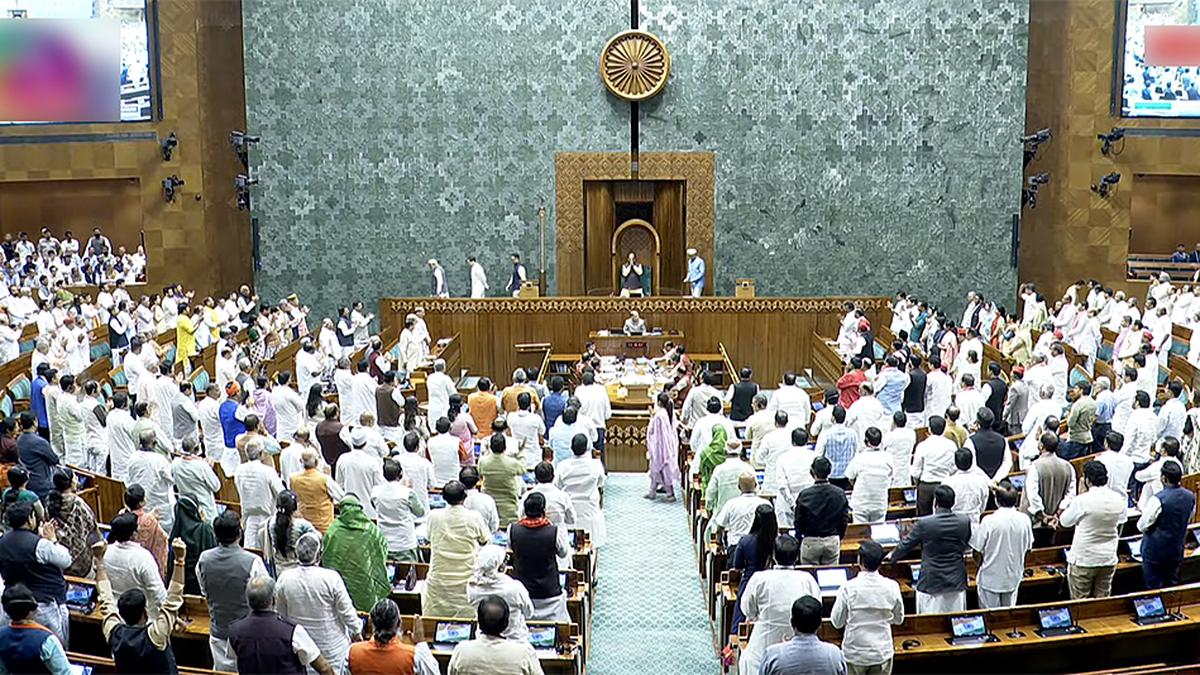Deputy Speaker of Lok Sabha

- 30 May 2025
In News:
The office of the Deputy Speaker of the Lok Sabha, though not explicitly bound by rigid timelines, holds constitutional and democratic significance in India's parliamentary democracy. Under Article 93 of the Constitution, the Lok Sabha must elect a Speaker and Deputy Speaker from among its members "as soon as may be." Despite this mandate, the Deputy Speaker’s post has remained vacant since June 2019, reflecting a deepening divergence from constitutional propriety and democratic convention.
Constitutional Framework and Election Process
The Deputy Speaker is elected by Lok Sabha members, with the election date fixed by the Speaker and communicated through a parliamentary bulletin. As per Article 94, the Deputy Speaker remains in office until resignation, disqualification, or removal by a resolution supported by a majority. If the seat falls vacant, the House must elect a replacement. Constitutionally, under Article 95, the Deputy Speaker exercises all powers of the Speaker in their absence, including presiding over sessions, maintaining order, and ensuring legislative discipline.
While the Constitution does not mandate a time frame for this election, the phrase “as soon as may be” is intended to ensure prompt appointment to avoid any constitutional vacuum. However, the absence of legal compulsion has been misinterpreted, leading to prolonged delays.
Functions and Powers
The Deputy Speaker assists the Speaker in running the House and steps in as presiding officer when the Speaker is absent. In legislative committees, if nominated, the Deputy Speaker automatically assumes chairmanship. Distinctively, unlike the Speaker, the Deputy Speaker may participate in debates and vote on all matters when not presiding. When chairing, however, the Deputy Speaker can only vote in case of a tie. The salary of the Deputy Speaker is charged on the Consolidated Fund of India, ensuring financial independence from executive discretion.
Parliamentary Convention and Historical Practice
India's parliamentary practice, inspired by the Westminster model, has traditionally ensured balance by allocating the Deputy Speaker’s post to the Opposition, especially since the post-Emergency era. Notable examples include G.G. Swell (1969–77) and Godey Murahari (1977–79), both from Opposition parties. The intent has been to uphold a power-sharing mechanism and offer space for dissent within the House's functioning.
Democratic Concerns Arising from Prolonged Vacancy
The continued absence of a Deputy Speaker through the 17th and now 18th Lok Sabha raises serious concerns. It undermines Articles 93–95, and violates Rule 8 of the Lok Sabha Rules (1952), which mandates timely election post a formal motion. The delay centralizes authority in the Speaker—typically from the ruling party—and distorts the democratic balance between treasury and Opposition benches.
Moreover, the non-appointment sidelines the principles of consensus-based governance and institutional checks and balances, weakening parliamentary accountability. It also poses risks during any potential Speaker vacancy, potentially triggering a constitutional crisis.
Conclusion
The Deputy Speaker's post is not a ceremonial redundancy but a constitutional necessity for balanced legislative functioning. Upholding this institution is critical for the health of India’s democracy. The ongoing vacancy reflects not just administrative inaction but a gradual erosion of parliamentary conventions, warranting urgent political consensus and constitutional fidelity.
